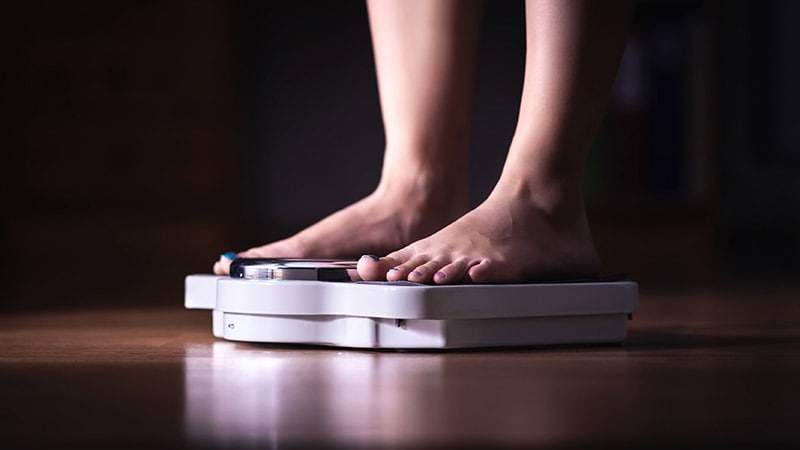TOPLINE:
Cannabis and psychedelics were rated as the most effective drugs for symptom relief by survey participants with eating disorders (EDs), including anorexia nervosa, bulimia nervosa, and binge eating disorder (BED). On the other hand, patients perceived prescription antidepressants as mainly providing benefits for overall mental health.
METHODOLOGY:
- Researchers analyzed responses to the international online MED-FED survey between 2022 and 2023.
- The study included more than 6000 adults (mean age, 24.3 years; 94% women; 82% White) who self-reported an ED (62%) or disordered eating (38%) and were predominantly from Australia (30%), the UK (21%), and the US (18%). The highest percentage of ED type was anorexia nervosa (41%), bulimia nervosa (19%), and BED (11%). Additionally, 65% had comorbid depression.
- The survey included questions on recent (previous 12 months) use of prescription drugs, caffeine, alcohol, tobacco and nicotine, cannabis, psychedelics, prosocial or party drugs such as 3,4-methylenedioxymethamphetamine and gamma-hydroxybutyric acid, stimulants, and opioids.
- Participants rated their agreement on a 5-point Likert scale regarding each drug’s effects on ED symptoms, overall benefits for mental health, and unpleasant side effects.
TAKEAWAY:
- Cannabis was used by 56% of participants, with its daily use being particularly high among those with avoidant/restrictive food intake disorder (odds ratio, 2.4; P < .001).
- Psilocybin and cannabis received the highest positive rating for relieving ED symptoms (mean rating, 0.50 for both), followed by lysergic acid diethylamide (mean rating, 0.3).
- Prescription antidepressants were rated effective for improving overall mental health but not for relieving ED symptoms, with the exceptions of lisdexamfetamine for BED (mean rating, 1.14) and fluoxetine for bulimia nervosa (mean rating, 0.50).
- Alcohol and amphetamines (mean rating, -0.52 for both) received the poorest ratings for symptom improvement.
- Unpleasant adverse effects were least likely to be reported with the use of lamotrigine (mean rating, -0.49), illicitly sourced diazepam (mean rating, -0.40), bupropion (mean rating, -0.29), and psilocybin (mean rating, -0.30).
IN PRACTICE:
“These findings highlight an important pattern: with traditional medications often falling short in treating eating disorders directly, while many individuals are self-medicating with substances they perceive as helpful,” lead investigator Sarah-Catherine Rodan, the University of Sydney, Sydney, Australia, said in a press release.
The results also suggest that “more research, including large clinical trials, should be undertaken around the beneficial effects of cannabis and psychedelics for people with eating disorders,” she added.
SOURCE:
The study was published online on July 22 in JAMA Network Open.
LIMITATIONS:
The study predominantly involved high-income English-speaking countries and participants with internet access, potentially introducing a selection bias. The sample may have also been influenced by novelty-seeking individuals or those with positive experiences with drugs. The reliance on self-diagnosis without formal assessment of EDs or comorbid conditions, along with potential recall bias in self-reporting of drug use and clinical features, limited the generalizability of findings. Some findings involved relatively small numbers of people with specific diagnoses using specific drugs, and the positive public perception of cannabis and psychedelics may have influenced ratings through expectation and placebo effects.
DISCLOSURES:
The study was funded by the Lambert Initiative for Cannabinoid Therapeutics at the University of Sydney. Several investigators reported having financial ties with various sources, and some reported holding share options, patents, and expert-witness roles with pharmaceutical and cannabis-industry entities. Full details are listed in the original article.
This article was created using several editorial tools, including AI, as part of the process. Human editors reviewed this content before publication.
Source link : https://www.medscape.com/viewarticle/cannabis-psychedelics-get-high-marks-eating-disorder-2025a1000l3l?src=rss
Author :
Publish date : 2025-08-08 11:48:00
Copyright for syndicated content belongs to the linked Source.
